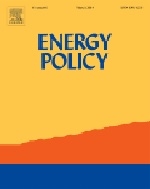Multicriteria Analysis of Agricultural Raw Materials: A Case Study of BSBIOS and PETROBRAS BIOFUELS in Brazil

Por: Admin - 09 de Maio de 2014
Autores: Valdecir José Zonina, José Antônio Valle Antunes, Jr.b e Rodrigo Pinto Leis
Given the issues associated with the limited global oil supply, the consequent high prices observed for its derivatives, and the consequences of the increase in the environmental problems derived from the burning of fossil fuels, an array of debates on renewable energy sources have emerged. In this context, biodiesel, alcohol, and ethanol constitute real alternatives under the broader perspective of alternative energy (Zonin, 2008).
Historically, Brazil has been directly involved with energy issues. The first, most significant structural efforts were related to the establishment of the National Alcohol Program (Programa Nacional do Álcool - PROÁLCOOL) in the 1970s and its practical aftermath. More recently, at the end of 2004, the National Biodiesel Program (Programa Nacional de Biodiesel - PNBIO) was created, which considers such aspects as the following: i) tax differentiation; ii) the establishment of mandatory percentages in fuel mixtures; iii) the creation of the social fuel seal for companies that work with family farming (according to the percentage of each State of the Federation); iv) specific regulation for the production and use of biodiesel; and v) criteria associated with the National Technical Assistance and Rural Extension Program (Programa Nacional de Assistência Técnica e Extensão Rural-PNATER) (Zonin, 2008). In 2007, the use of biodiesel was tested at the national level in a non-mandatory manner through the addition of 2% biodiesel (B2) to the mineral diesel fuel, which potentiated the consumption of approximately 840 million liters of the product. However, starting in January 2008, this mixture became mandatory, and the percentage of biodiesel in the mixture has gradually increased every year until it reached B5 in 2009. This B5 mixture is still in effect in 2012. This mixture represents the addition of 2.4 billion liters of mineral diesel, which encompasses those allocated for mandatory use and for the captive fleet in the country (ANP, 2012). Thus, the Brazilian biodiesel industry is moving toward a structured and productive consolidation.
Nine biodiesel production industries are emerging in Rio Grande do Sul. Six of these plants are currently in operation and produced 862,110 million liters in 2011, which represents 32% of the national annual production (2.67 billion liters) and is equivalent to the amount that is used for B5 (ANP, 2012). However, despite the great effort that the government has exerted to consolidate the biodiesel production in the country, the production of biodiesel is still in the initial phase of the national energy plan. According to Zonin (2008), this process shows a number of uncertainties and problems that must be considered, which include the following: i) the economic viability of the solutions that are proposed from different agricultural raw material alternatives (e.g., soybean, canola, castor, and sunflower); ii) the review of the energy balances of the production matrices that are proposed; iii) the belief that biofuels may compete with food production; iv) the maintenance of the social seal; and v) the consequences to the petroleum supply chain and its derivatives (e.g., plastic industry, chemical products, and lubricants). Given these uncertainties and problems, it appears that there is a dearth of academic research, both theoretical and empirical, that is capable of evaluating and further elucidating these issues that are related to the biodiesel industry (Penteado, 2005; Santos and Rathmann, 2009). In the specific case of the installation of biodiesel companies, there are a number of economic, financial, social, and environmental issues that need to be addressed. On one hand, the contribution of marketing knowledge and industrial technology is important. However, on the other hand, it is equally important to understand the socio-productive scenarios that encompass the entire biodiesel production chain, from raw materials to final products, which involve aspects related to the following: i) the production of the raw material; ii) the input logistics; iii) the manufacturing process; and iv) the output logistics (distribution). Thus, for the sustainable development of the biodiesel industry in Brazil, it is considered important to build supply and production chains that are capable of supporting the growing demand that is generated by this market. These chains require the identification of oleaginous crops that can be used to reduce the dependence on the soybean as the main energy matrix of biodiesel. Thus, the primary purpose of the present article is to identify the economic, technological, and social factors that should be considered by biodiesel plants to define the agricultural raw materials that are used for the production of biodiesel in Brazil. In this context, BSBIOS and PETROBRAS BIOFUELS proves to be an interesting case study because it is an organization that produces biodiesel and aims to diversify the raw material production (soybean, canola, sunflower, and castor) that is used for the processing of biodiesel. Therefore, this company provides a unique and fruitful case study because the best alternatives for the development of biodiesel can be analyzed through different production chains and the different strengths and constraints of each available alternative can be studied. Moreover, because the raw material is the main item that defines the costs of the resultant biodiesel, the analysis of the variables of each of the cultures used to provide the input materials could provide important information that managers involved with the Brazilian biodiesel production chain can use to undertake a more global and systematic decision-making process.
